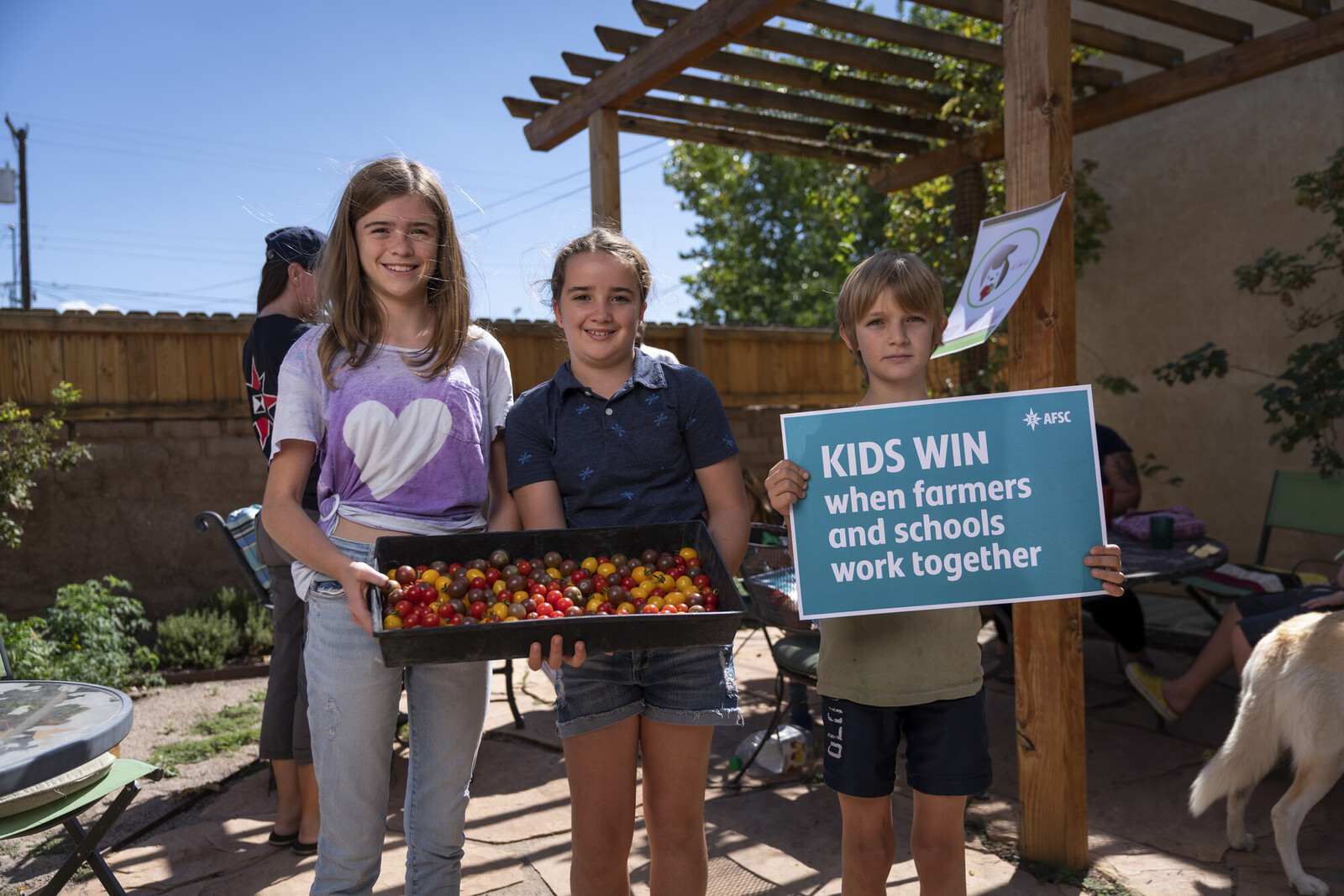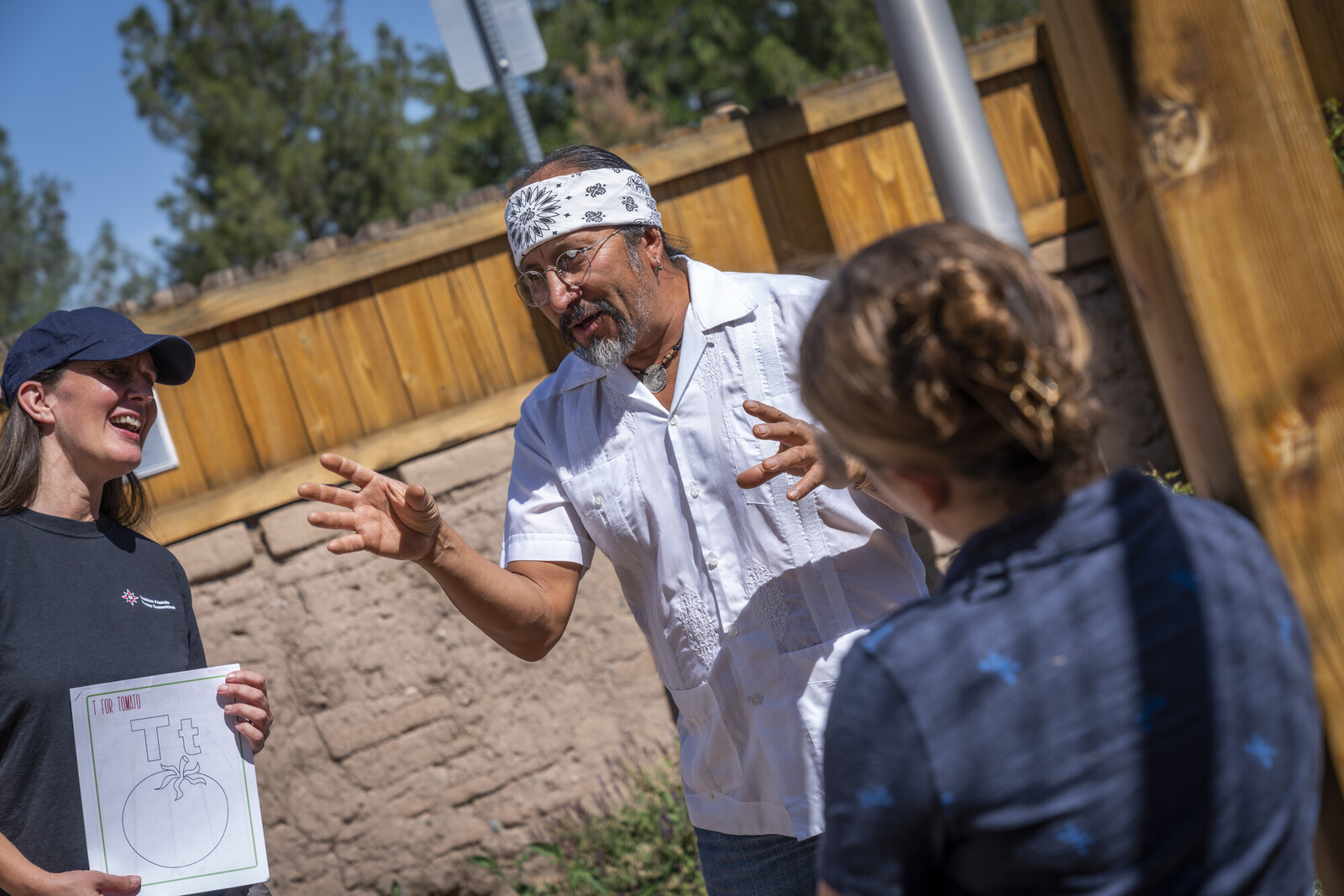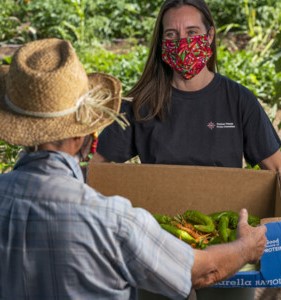
Kids get a chance to try delicious local cherry tomatoes during a Cherry Tomato Chomp presentation. Photo: Core-Visual
This op-ed originally appeared in the September/October issue of Green Fire Times.
In his new book Ultra-Processed People, infectious disease doctor Chris van Tulleken describes the harmful effects of ultra-processed foods, which make up 80 percent of the diet of many adults and children in the U.S. The picture isn’t pretty. Transnational companies make billions while also making us sick.
But we don’t have to eat this way. In 2015, the American Friends Service Committee New Mexico (AFSC), created a Farm to Early Childhood Education (ECE) project, a win-win program that helps small-scale, organic farmers supply fresh vegetables to preschool (especially low-income) children. The project supports local farmers in providing food to ECE centers throughout the state, including Albuquerque, the Española Valley, Taos Valley, Jemez Pueblo and Isleta Pueblo. AFSC’s work is led and planned by people in the communities.
A result of structural racism is that low-income children of color often do not have access to local fresh produce. This has long-lasting impacts, including poor health outcomes.
AFSC partners with Head Start programs that provide young students a monthly nutrition activity. AFSC’s healthy eating campaigns provide local, organic produce free to each site, along with activity guides. With campaigns such as the Cherry Tomato Chomp, the Great Carrot Crunch and Give Peas a Chance, preschoolers enjoy learning about and eating unprocessed food that’s good for them. Educators and parents have asked AFSC to expand the program. “Some of them had never tasted a carrot before,” said one Albuquerque teacher. “They were excited to share with their families what they did at school.”
Twelve small family-operated farms have provided food for over 1,000 kids at more than 30 preschools. This year, AFSC brought two Albuquerque farmers for classroom visits. The children enjoyed planting seeds with them and meeting one of the farmer’s goats.

Farmer Fidel Gonzalez speaks to Albuquerque preschoolers. Photo: Core-Visual
The State of New Mexico recognizes the value of local food programs, as well. Recently, a slate of new food and hunger legislation was passed, making much more robust financial and administrative support available. AFSC will continue to lift up the voices of farmers, early childhood teachers and cooks to share their experience of what works.
Projects such as Farm to ECE have ramifications far beyond New Mexico. Connecting local, organic, small-scale family farmers with children is a good way to address larger issues. These farmers take better care of land and water. Communities benefit when money spent on food stays in communities rather than lining the pockets of mega-agribusinesses.
Farm to ECE is also an important component in addressing climate change. By keeping food local and reducing use of fossil fuels in production and transportation, we’re making a positive difference in our lives and the future lives of preschoolers. It’s easy to feel overwhelmed by the depth and breadth of the local-to-global problems we face. Programs like our Farm to ECE can give us hope.
Visit AFSC New Mexico at afsc.org/newmexico if you’d like to learn more and become involved.
